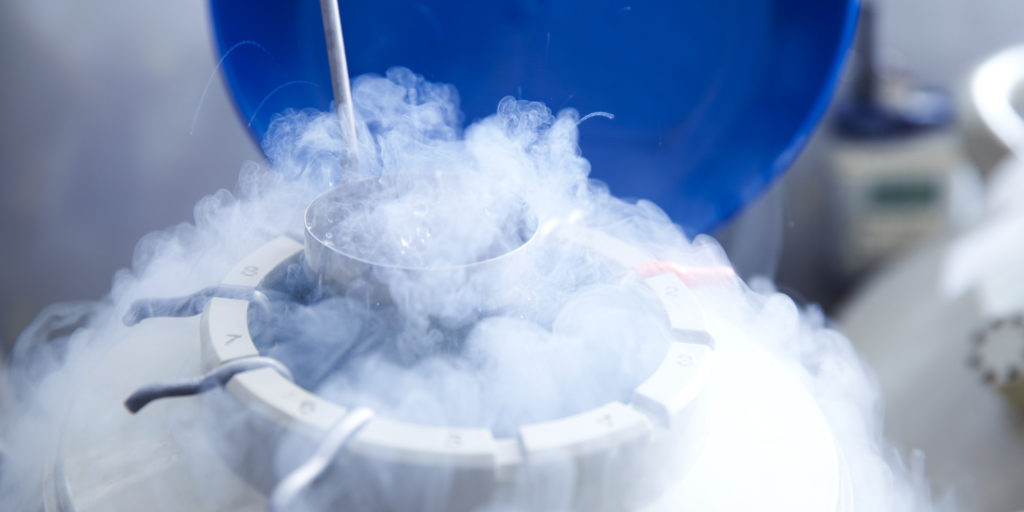
With the advanced fertility preservation techniques utilized at Carolinas Fertility Institute (CFI), women can take charge of their “ticking biological clocks.”
Patients concerned about their future fertility often use cryopreservation. This is the freezing of human reproductive tissue to be used later for IVF therapies or intra uterine insemination (IUI).
By using liquid nitrogen, human tissues such as semen, eggs, and embryos are frozen at approximately 350 degrees below freezing and stored in specially designed tanks. When the patient is ready to begin a family, the tissues are shipped to CFI, thawed, and used in a procedure to impregnate the woman. Regardless of the causes of infertility, cryopreservation and cryostorage are advances in the medical field that allow patients another attempt at having a family.
Here are some of considerations when making a decision to have your eggs frozen.
1. Initial tests can be enlightening.
Hormonal blood tests may aid in assessing ovarian potential, revealing if you have a low, average, or high number of eggs. The testing can determine which women may lose fertility more quickly, as well as provide valuable insight around ovarian reserve.
- Overall health screening.
Egg retrievals require testing and evaluation of the female reproductive system. During egg retrieval, our physicians review your reproductive capability in action, giving patients a great understanding of their own eggs.
- Time and effort.
The first month is spent reviewing blood tests and completing ultrasounds to ensure you’re a good candidate for egg freezing. During the second month, you will require two weeks of medicine prior to your egg retrieval procedure. While you are on this medication, the growth of the eggs is monitored with ultrasound and blood tests to find out when they will be ready. At normal ovulation time, the egg harvest procedure is performed. You will be placed under light sedation for the procedure and may feel cramping and bloating afterwards. Ideally, around 15 eggs are frozen for future treatment use, but fewer can be frozen and stored as well.
- Viable plan.
While freezing eggs does not guarantee a baby, it offers a viable insurance plan. When you’re ready to use your frozen eggs to have a child, several steps must be performed by CFI’s specialists prior to pregnancy. Eggs must survive the thaw, fertilize, implant and ideally result in a pregnancy. Until eggs are used for treatment, physicians cannot predict the outcome.
- Cost consideration.
The cost of medication and treatment for one cycle is expensive and storing eggs will cost even more per year. But freezing your eggs may save thousands of dollars in fertility treatment down the road, and it offers patients a level of comfort.
- If possible, freeze embryos instead.
If you already have a partner but aren’t ready for children, freezing embryos rather than eggs will increase your odds of future success. A woman’s eggs are delicate, and not all will survive the thawing process. One stage of the process can be eliminated by using your partner’s sperm to fertilize the eggs, then freezing the resulting embryos.
###
Carolinas Fertility Institute is a practice with offices Winston-Salem, Greensboro and Charlotte. The practice specializes in the evaluation, diagnosis, and treatment of infertility. CFI provides advanced reproductive technologies in a comforting, supportive environment to give patients the personal care they deserve.
CFI currently has among the highest IVF success rates in the nation due to a combination of professional talent and the latest technology. CFI has been delighting patients since their opening in March 2015, specializing in highly-personalized treatment and resulting in many first-cycle pregnancies.
The practice accepts most insurance plans and offers a range of options for self-pay patients, including IVF, Donor egg IVF and Fertility Preservation. Patients interested in obtaining additional information about Carolinas Fertility Institute and our services, you may call 336 448 9100 or visit us at www.CarolinasFertilityInstitute.com.